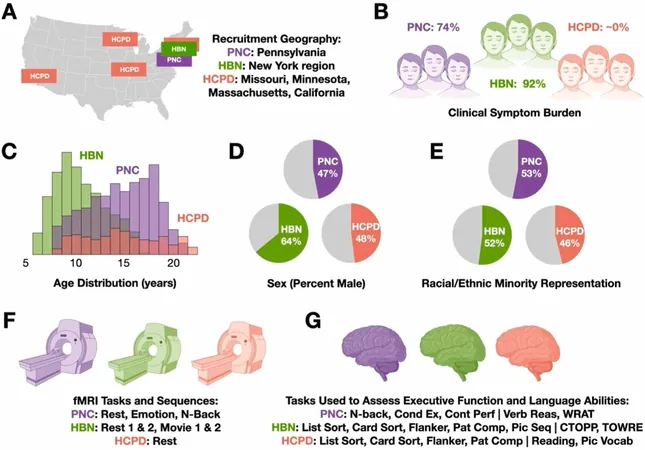
Unlocking the Secrets of Plant-Based Diets: Safeguarding Against Diabetes and Heart Disease!
2024-11-02
Author: Mei
In recent years, vegetarian and vegan diets have gained significant attention as viable strategies for disease prevention—particularly concerning diabetes and heart health. Despite overwhelming evidence supporting these dietary patterns, many healthcare professionals are yet to fully embrace their potential benefits.
Two pivotal reviews published in October 2024 shed new light on the positive impact of plant-based diets on cardiometabolic health. These studies aim to close the gap between research findings and clinical practice, promoting better health outcomes for those at risk of, or living with, type 2 diabetes and heart disease.
Current dietary guidelines such as the 2020–2025 Dietary Guidelines for Americans advocate for plant-based eating as a means to foster wellness and prevent illness. However, misconceptions and outdated information often skew practitioners’ recommendations, leaving many patients unaware of the benefits these diets could offer.
The recent reviews highlight that individuals adopting vegetarian or vegan diets may experience improved glycemic control, evidenced by a decrease in hemoglobin A1c—a critical marker for managing diabetes. In a systematic review analyzing seven randomized controlled trials involving predominantly middle-aged participants, those on plant-based diets exhibited a modest reduction in body mass index as well.
But it doesn’t stop there! Research indicates that vegan diets are associated with lower levels of LDL cholesterol and triglycerides, crucial factors in cardiovascular health. By replacing animal fats with heart-healthy plant-based fats, individuals may witness a significant drop in inflammation and potentially stave off atherosclerosis—a common precursor to heart disease.
Dr. Avantika Waring, an endocrinology expert, emphasizes that the true advantage of plant-based diets lies not just in what they exclude but significantly in what they include: nutrient-dense foods that provide higher fiber, antioxidants, and essential vitamins. Many proponents of these diets report better weight management, with studies suggesting that individuals consuming plant-rich diets may weigh as much as 30 pounds less on average. This weight reduction correlates with improved blood sugar management and a lower risk of chronic diseases.
The rise in interest surrounding plant-based eating is palpable! According to the International Food Information Council's 2024 health survey, up to 8% of Americans now identify as vegetarian or vegan, with many more choosing predominantly plant-based diets. This trend reflects a cultural shift towards healthier eating habits, particularly among younger generations eager to combat the escalating rates of obesity and chronic illnesses.
Despite the compelling evidence supporting plant-based diets for managing chronic diseases, experts caution against processed vegetarian foods high in sugar or unhealthy fats. As Dr. Waring aptly notes, the benefits of a plant-based diet only materialize if individuals remain committed to sustainable, healthful eating patterns.
Educational outreach is crucial to dispel myths surrounding vegetarian and vegan diets, such as concerns of nutritional inadequacy or cost. Many misunderstandings stem from cultural biases favoring meat-heavy meals. By advocating for a diverse array of plant-based foods and emphasizing meal planning, experts can help individuals navigate the transition to healthier dietary patterns effectively.
So, if you're contemplating a switch to vegetarianism or veganism, consider consulting with a registered dietitian who can help you craft a balanced diet that meets your unique nutritional needs. Embracing a plant-based lifestyle may just be the key to unlocking a healthier, disease-free future! Don’t wait—your journey toward better health begins now.



 Brasil (PT)
Brasil (PT)
 Canada (EN)
Canada (EN)
 Chile (ES)
Chile (ES)
 España (ES)
España (ES)
 France (FR)
France (FR)
 Hong Kong (EN)
Hong Kong (EN)
 Italia (IT)
Italia (IT)
 日本 (JA)
日本 (JA)
 Magyarország (HU)
Magyarország (HU)
 Norge (NO)
Norge (NO)
 Polska (PL)
Polska (PL)
 Schweiz (DE)
Schweiz (DE)
 Singapore (EN)
Singapore (EN)
 Sverige (SV)
Sverige (SV)
 Suomi (FI)
Suomi (FI)
 Türkiye (TR)
Türkiye (TR)